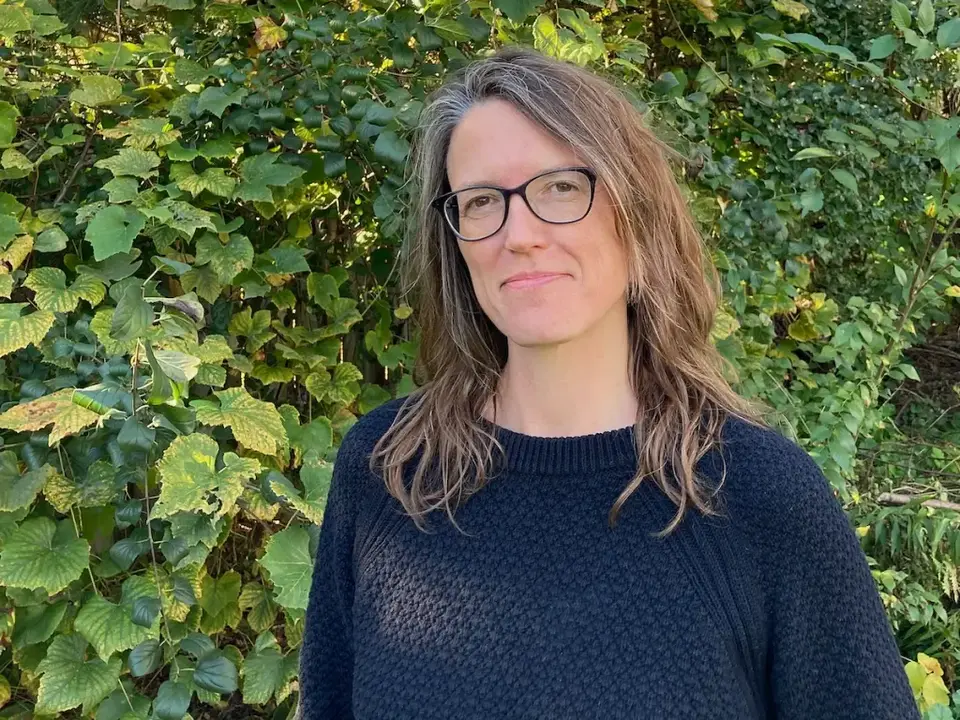
Battleford Gravesite
“A tone-perfect elegiac meditation on the impossibility of engaging with painful history and the necessity of doing so.”
—Margaret Atwood, Thomas Morton Memorial Prize Judge, 2014
We must vindicate the position of the white man;
we must teach the Indians what law is.
—John A. MacDonald
Tonight the clouds are tall and turquoise. North Battleford along the motel strip.
Pickup trucks darkly uniform, kitted out, wide, lined up in the parking lot;
dump trucks head-to-toe along the service road. You’ll be talked to
in your dream tonight. You’ll learn how things are done here.
You’ll forget. There’ll be lightning, then the sun will push out like an egg,
metallic and hard, before receding into redness. You won’t sleep long.
In the morning, the Battle River will sparkle nearly white,
a colour you recognize but it’s too much, your eyes can’t take that much brightness.
*
Beyond the fort site, behind the campsite, down in the valley overlooking ball fields,
angled at the river, away, the eight bodies turned under grassland,
Wandering Spirit’s song to his wife still unfinished underground.
The saplings pushing, making cover, rocking themselves.
Your camera, your hands, your mouth, your feet soft but for the dust clouds
though it rained last night, or was that your dream.
The eight poles above the scrubline in your photo.
Show some respect and keep your distance. Though with no paved route,
no federal plaque, you don’t know what respect is.
*
The headstone, the gravel, the colony of raspberries thick within the chain link
penning in the burial site. The song to a wife. Three cigarettes for the stone.
The song mixed with earth. Chanting, wailing.
The wind above, the poplars shielding.
The sun above, the poplars diffusing.
The film canisters you thought you’d fill with dirt.
The names you write on a receipt from Fort Battleford:
Kah-paypamhchukwao, Pahpah-me-kee-sick, Manchoose, Kit-ahwah-ke-ni,
Nahpase, A-pis-chas-koos, all Mistahimaskwa’s men,
plus two who killed Battleford settlers, Itka and Waywahnitch.
*
“Kahpaypamahchakwayo,” I said, “you have been shut up here for four months. You might at any time have made a statement about the massacre. You have not done so. Your followers all place the blame for what occurred on you. I do not believe you are quite so bad as they make you out; therefore I have come to see you. Tomorrow will be too late. If you wish to speak, to say anything in your own defence, I shall be glad to take it down. It will be printed.”
He was silent for a long time.
“Imasees told me at a dance one night before the outbreak that he depended on me to do this thing. I fought against it. I wished last winter to leave the band and go to Duck Lake. My relatives lived there. Imasees nor the others would let me go. Kapwatamut, the Indian agent, would give me no provisions. It seemed it was to be—I was singled out to do it.”
“Suppose I had been with the other whites at Frog Lake at the moment they were shot; what then, Kahpaypamahchakwayo?”
He considered before replying.
“We were singing,” he said at length.
*
Daily life in the fort recited by undergrads in period costume,
telling you how they all crowded in here after they heard the Indians were moving
off their reserves, a young man in a loose red uniform packing a cannon,
soon to be replaced by an interpretive sign—
when the line of built structures runs out the impersonating ends,
signs scattered through the area they suspect they did the hanging,
though no one here knows exactly where they did the hanging,
and the one sign you need to see most is not here.
November 27, 1885, eight in the morning: Wandering Spirit,
Round the Sky, Bad Arrow, Miserable Man, Iron Body, Little Bear,
Crooked Leg, and Man Without Blood.
The grass matted, the sun whitening.
River gold in the eye, in the distance.
Tonight you’ll sing their names out the window of your motel room.
You’ll gape as the city gathers its pickups and particle board.
Its flag poles and power lines, Vacancy / No Vacancy signals.
Clouds like storeys, as high as you can see, dark turquoise.
The fourth section of this poem comes from William Bleasdell Cameron’s Blood Red the Sun.


